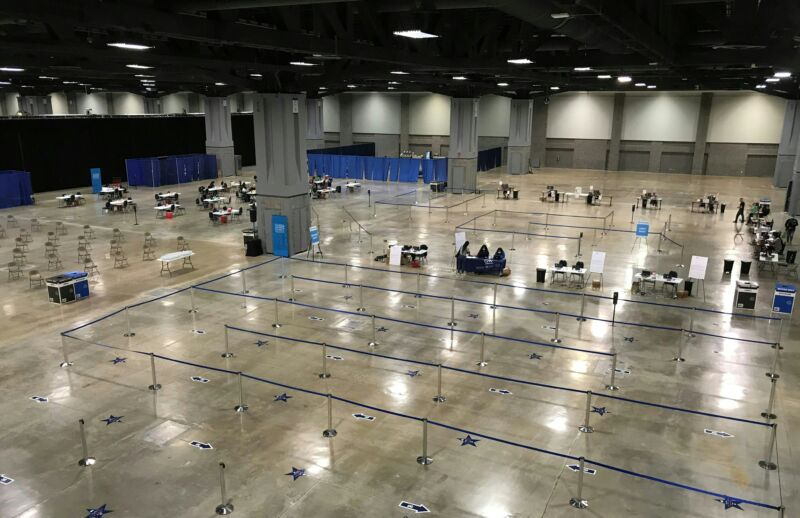US may miss July 4 vaccination target as number of daily doses plummets

The rate of COVID-19 vaccinations in the US has now slowed to a crawl after weeks of decline in the number of doses given out each day. The continued trend threatens to further drag out the devastating pandemic. It also now imperils a goal set just last month by President Joe Biden to have 70 percent of American adults vaccinated with at least one dose by July 4.
On Monday, the country’s seven-day average of doses administered per day was again below 1 million, where it has been now for several days. The average hasn’t been this low since January 22. In mid-April, the average peaked at nearly 3.4 million doses a day, following a record of over 4.6 million doses administered in a single day.
With less than a month to go until Independence Day, there’s a real possibility that the US will fall shy of Biden’s 70-percent goal. Currently, about 63.7 percent of adults in the country have received at least one dose. But a chunk of daily doses are now going to adolescents ages 12 to 17, who became eligible for vaccination last month. And total vaccination numbers are still on a significant decline. If current trends hold, the US may only have about 67 percent of adults vaccinated with at least one dose by the Fourth of July, according to one analysis conducted by USA Today.
This vaccination rate will not be uniform across the country, of course. Some states and areas lag significantly behind in getting their populations vaccinated, while others are close to or have already met Biden’s goal. Thirteen states, most of them on coasts, have already vaccinated 70 percent or more of their adult populations with at least one dose.
But overall, large vaccination centers that have remained open are largely empty, and once-coveted doses of COVID-19 vaccines are collecting dust. For instance, close to half of the 21 million doses of Johnson & Johnson’s vaccine produced for the US are now sitting unused, according to a report by the Associated Press. The report also suggested that at least some of those doses may expire before ever reaching an arm; most doses were shipped in early April, and the vaccine only has a three-month shelf life.
Meanwhile, the pandemic coronavirus continues to rage within pockets of unvaccinated people. According to an analysis by The Washington Post, the rate of cases and deaths just among unvaccinated people in some locations now rivals records seen at the height of the pandemic in the population overall.
A pivot
The Biden administration along with state and local officials have anticipated and adjusted to try to combat this problem. It has been clear since April that the country would quickly run out of people eager to get vaccinated, leaving those hesitant and resistant remaining. As such, officials have closed many mass vaccination sites and turned to smaller venues, mobile units, and local pharmacies to reach vaccine holdouts.
“As the numbers have dwindled down, we’ve pivoted,” Fernando Urrego, the interim health officer of Tennessee’s Hamilton County, told The Washington Post. “We now know that we’re not going to be able to give out 1,000 vaccines in one day in these pockets. If we get 10, we’re ecstatic. If we get 15, it’s a good day. It’s still a lot of effort for low yield, but we’re okay with that.”
But while every single vaccination will help the US get out of the pandemic and return to some normalcy, it’s still unclear how far the new targeted vaccination efforts will get the country. So far, people most resistant to getting vaccinated appear unwavering in their resistance. A poll on COVID-19 vaccinations opinions run by the Kaiser Family Foundation since last December has consistently reported that between 13 to 15 percent of US adults say they will “definitely not” get vaccinated.
The proportion of people who said they wanted to “wait and see” before they decide to get vaccinated has shrunk in the poll—moving from 39 percent in December to 12 percent in May. But recent efforts to boost vaccination uptake has largely failed to sway them. Those efforts include offering cash incentives, free rides to vaccination sites, and loosened restrictions on mask wearing and physical distancing. The most effective motivators, according to the polling, appeared to be the full approval of a COVID-19 vaccine by the Food and Drug Administration (rather than the current Emergency Use Authorization) and paid time off from employers to get vaccinated. But even those did not sway a majority of holdouts.
https://arstechnica.com/?p=1771195